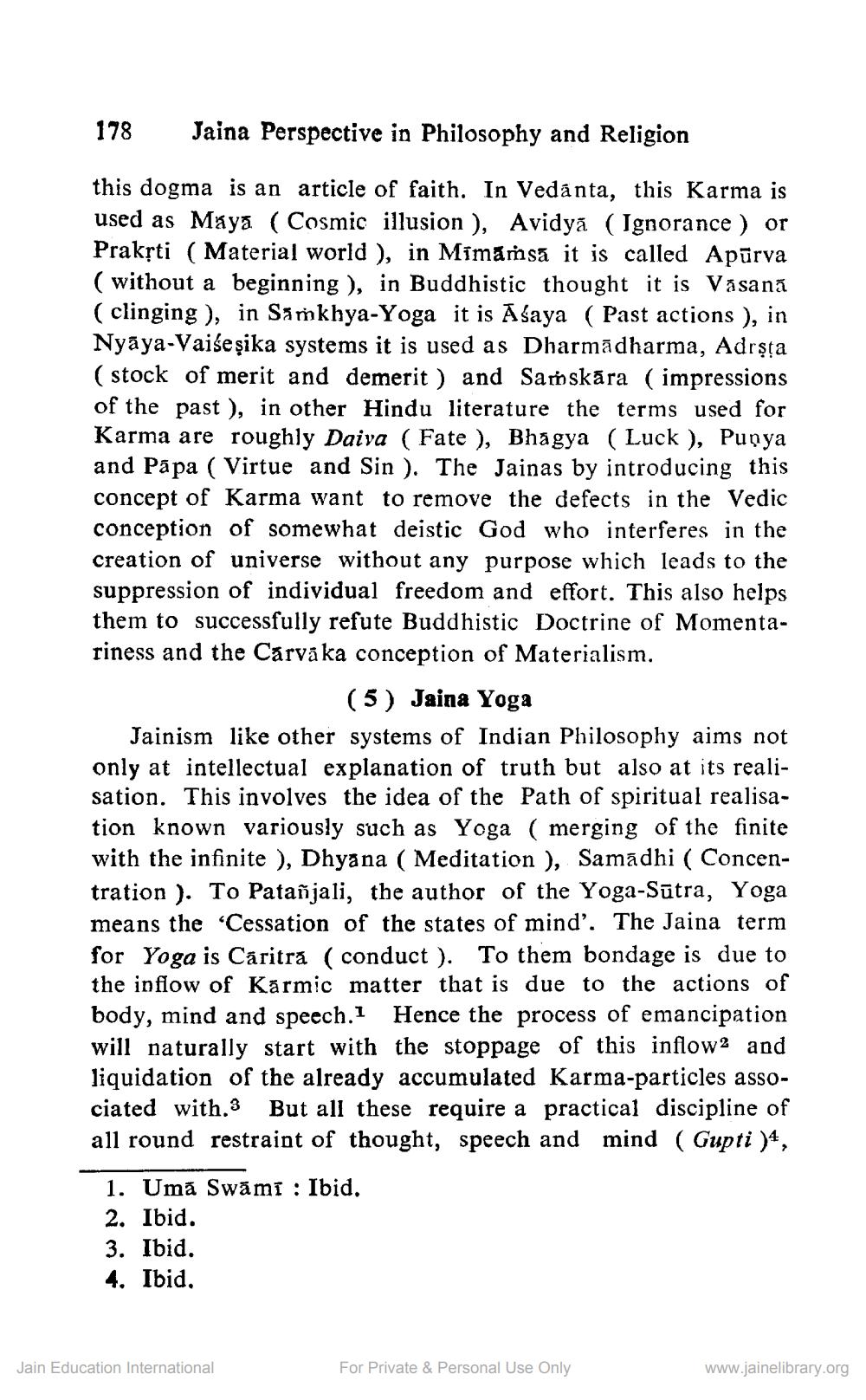________________
178
Jaina Perspective in Philosophy and Religion
this dogma is an article of faith. In Vedanta, this Karma is used as Maya (Cosmic illusion ), Avidyă ( Ignorance ) or Prakrti (Material world ), in Mimāṁsā it is called Apūrva (without a beginning ), in Buddhistic thought it is Vásanā ( clinging ), in Saṁkhya-Yoga it is Ābaya (Past actions ), in Nyāya-Vaišeşika systems it is used as Dharmādharma, Adrsta (stock of merit and demerit ) and Samoskāra ( impressions of the past ), in other Hindu literature the terms used for Karma are roughly Daiva ( Fate ), Bhagya (Luck ), Punya and Pāpa ( Virtue and Sin ). The Jainas by introducing this concept of Karma want to remove the defects in the Vedic conception of somewhat deistic God who interferes in the creation of universe without any purpose which leads to the suppression of individual freedom and effort. This also helps them to successfully refute Buddhistic Doctrine of Momentariness and the Carvaka conception of Materialism.
(5) Jaina Yoga Jainism like other systems of Indian Philosophy aims not only at intellectual explanation of truth but also at its realisation. This involves the idea of the Path of spiritual realisation known variously such as Yoga ( merging of the finite with the infinite ), Dhyana ( Meditation ), Samadhi ( Concentration ). To Patañjali, the author of the Yoga-Sūtra, Yoga means the “Cessation of the states of mind'. The Jaina term for Yoga is Caritra (conduct ). To them bondage is due to the inflow of Karmic matter that is due to the actions of body, mind and speech. Hence the process of emancipation will naturally start with the stoppage of this inflow2 and liquidation of the already accumulated Karma-particles associated with.3 But all these require a practical discipline of all round restraint of thought, speech and mind (Gupti), 1. Umā Swami : Ibid. 2. Ibid. 3. Ibid. 4. Ibid.
Jain Education International
For Private & Personal Use Only
www.jainelibrary.org




